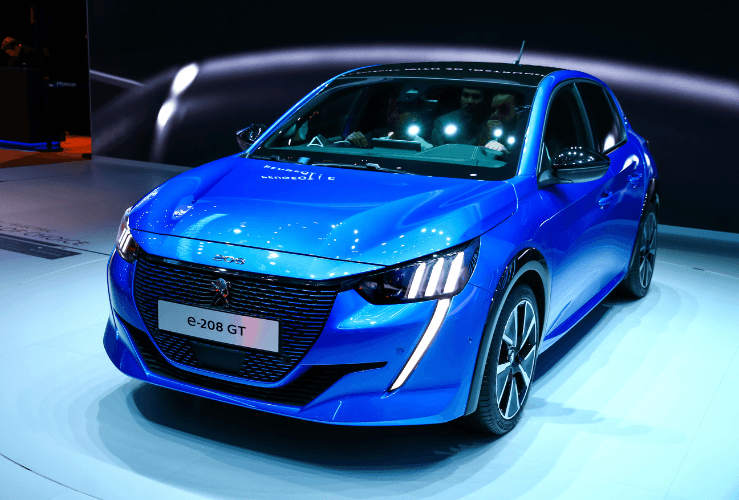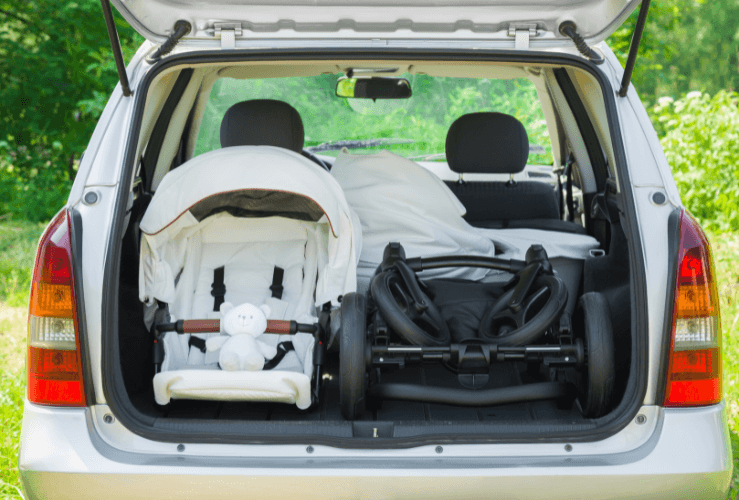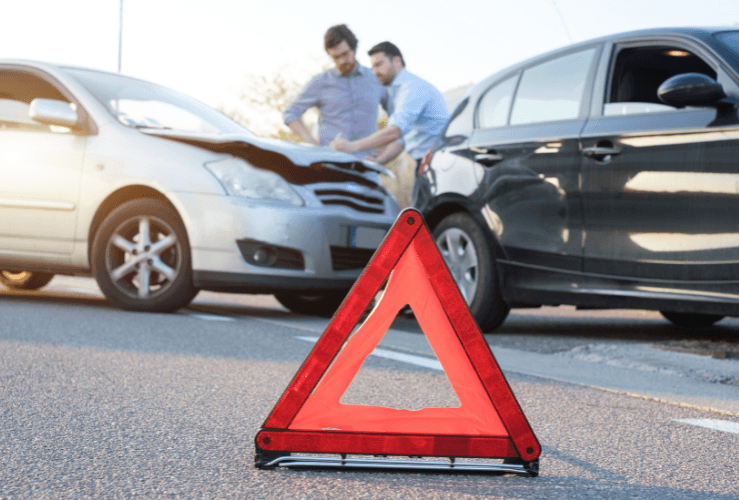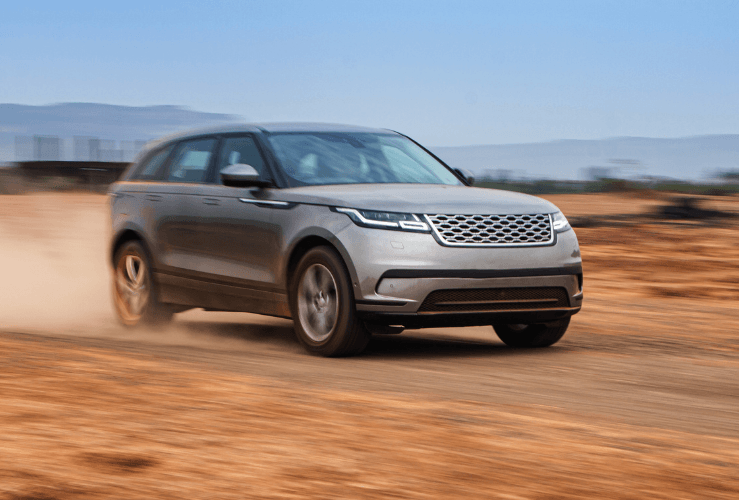How do I choose a car?
This question has preoccupied people since the dawn of motoring back in the early 20th century.
Buying a new car is likely to be the second-largest purchase you'll ever make - after a property. Such an investment therefore demands a good deal of research and careful thought.
From number-of-seats to boot space, fuel economy to warranty cover, there are many factors to consider when thinking about how to decide what car to buy.
If you've just searched 'how do I choose a car', you're in luck.
Here are some of the key things to think about before you drive off the forecourt in a brand new set of wheels.

What will you use the car for?
Rather than asking simply What car do I want? you'll need to select a vehicle that suits your lifestyle and needs. Think about passenger space, boot capacity and performance.
Choosing the ideal car for families
If you have a family, you'll be looking at a vehicle with at least four seats and plenty of boot space.
The VW Touran, for example, has a third row of seats, making it a good option for large families.
Choosing your ideal car: Single people/couples
If you're single or in a couple, a smaller runabout might suffice.
Good examples include the zesty Suzuki Ignis and the Kia Picanto.
If you generally only need space for two people, but would like to carry passengers occasionally, something like a VW Golf, with its usable rear seating, combines practicality and sportiness. Note that because it has three doors, it can be tricky to enter and exit.
Choosing the ideal car for older drivers/passengers
If you're an older driver, or plan to transport elderly family members, you'll need to consider how easy it is to get in and out of the car.
The Honda Jazz, for instance, offers easy entry/exit, plus it's spacious and dependable.
Ideal car for off road/countryside driving
And if you live in the country, an off-road style vehicle - possibly with all wheel drive - could be an option. The Land Rover Range Rover (great off road capabilities and visibility) and the MINI Countryman (great ground clearance, space and sharp handling) are solid options.
Choosing the ideal car: new drivers
Help me choose a car: it’s a common refrain for those who’ve recently passed their test.
First time drivers are probably looking for an affordable, easy-to-drive and safe car.
A good example is the VW Up! - previous winner of AutoExpress's City Car of the Year (four times in a row) - with its insurance group 10 categorization, its 50mpg fuel economy, and its Electronic Stability Control (all models).
The KIA Picanto is another good new-driver option, with sporty looks, 50mpg fuel economy and low insurance groups on all models.
 Credit line: art_zzz - stock.adobe.com
Credit line: art_zzz - stock.adobe.com
Fuel economy: What car should I buy?
The cost of living crisis has seen the price of fuel soar from a recent low of £1.30 per litre in 2020 to £2.30 a litre today - that's a rise of 77% in just two years.
As such, if you're on a budget it makes sense to choose a car with good fuel economy.
Frugal options include the Peugeot 208 1.5 BlueHDi (100) Active manual, returning 73.6mpg.
The Citroen C3 1.5 BlueHDi (100) Shine Plus gives you 70.6mpg, while the Skoda Octavia 2.0 TDI (114) SE Technology boasts 68.2mpg.
Go electric to avoid VED
You might also consider an electric car.
If you charge your vehicle at home overnight, the cost savings will add up over time.
Many electric vehicles also attract zero Vehicle Excise Duty (VED) or ‘road tax’. This can save hundreds per year.
For example, an all-electric Renault Zoe costs zero VED, while a petrol-engine Renault Clio (118-130g/km of emissions) attracts £180 in the first year and £155 afterwards on an annual basis.
More information on Vehicle Excise Duty
Determining a model's VED can be complex.
Your best option is to visit gov.uk to work out the costs.
Long distance or shorter trips: Which car should I get?
If you only make shorter trips with occasional long journeys, a petrol car is probably the most economical option.
Those who undertake regular long-distance journeys might consider a hybrid such as the Mitsubishi Outlander PHEV. This has an electric motor for short trips as well as a petrol engine for longer runs.
High polluters and premium cars
High polluting petrol/diesel cars are charged the most VED. For example, the Audi R8 (255gkm+) attracts £2,365 VED in the first year.
If you need to cut costs, it's also best to avoid cars with a list price of over £40,000, which attract the Premium Car Tax. For example the Mercedes Benz S-Class costs £355 a year for the first five years (on top of VED).
 Boot capacity: What car should I get?
Boot capacity: What car should I get?
If you plan long road trips in the UK or overseas, or if you transport items frequently, you'll need to think about boot space.
Capacity will be listed online, so it's easy to compare different models.
A VW Golf offers an average-sized 380 litre boot - enough for modest shopping runs and weekends away.
The larger Vauxhall Insignia Estate provides 560 litres, while the VW Tiguan offers a whopping 615 litres, plus a higher roof - ideal for larger items.
Some cars with smaller boots have 'magic seat' capabilities, which allow you to fold down the rear seat and carry bigger items when required. For example, the Honda Jazz - with its otherwise-modest 304 litres of boot space - has this feature.
Safety equipment
The Euro NCAP vehicle safety rating system has become stricter over the years, meaning it's harder than ever to win a good rating. Vehicles are judged on crashworthiness, vehicle weight, vehicle centre of gravity, and safety equipment.
When it comes to child occupant protection, the Mazda 6 received the highest rating in 2018 (91%), thanks to its two Isofix points and number of airbags.
The Mercedes A-Class also had a high rating.
In 2022, other five-star-rated cars include the Lexus NX, the Mercedes-Benz C-Class and the Volvo C40 Recharge.
At the other end of the spectrum, the Renault Zoe got zero Euro NCAP stars in 2021, while the Dacia Spring received a single star in the same year.
Naturally, keeping you and your passengers safe on the road is a key consideration, so it’s worth comparing these ratings.

Car insurance costs
After the cost of depreciation and fuel, the next biggest cost is likely to be insurance, so it’s important to look at the available options when choosing your ideal car.
How much insurance you will cost depends on things like your age, your vehicle's age and value, and how you plan to use it.
Your premium will also be heavily affected by which insurance group your car is in.
It will fall into a particular group based on value-when-new, repair costs, replacement part costs, and performance.
Which cars are cheap to insure?
Examples of cheap-to-insure cars include the Volkswagen Polo, the Hyundai i10 and the Volkswagen Up!.
For instance, a 30-year-old driver in an average postcode would be looking at £556 annually for a Hyundai i10 1.0 S Air 5d.
Expensive car insurance costs
Conversely, a 20-year-old in an average postcode could be looking at more than £1,150 for a Corsa 1.2 SE 5d.
Use insurance comparison websites to ensure you can afford the vehicle you want.
Car warranties
Every new car comes with a warranty, but what you can expect varies from brand to brand.
Which cars have the best warranties?
The pinnacle of the warranty rankings is Kia, which offers a seven-year/100,000-mile warranty on all models and unlimited mileage up to 36 months).
The South Korean marque has been offering long-term warranties since 2006.
Do note that some Key components come with shorter coverage - for example, the air conditioning and battery only have 24 months of cover.
Ssangyong (also South Korean) offers seven years too, as does China's MG.
Other car warranties
Other manufacturers are less generous with their warranty cover.
The Renault Clio comes with 5 years/100,000 miles, while the Vauxhall Corsa only offers three years/60,000 miles.
What are the benefits of a long car warranty?
A car with a longer warranty could mean you pay less for repairs over the years - since the manufacturer will organise them for you.
Warranty exclusions
Always read the small print of warranties, since elements such as paintwork may only have one year of cover.

Choosing the ideal model, equipment, colour, style and trim
We've looked at some of the key practical questions to ask when buying a car - but how you feel about your vehicle matters, too.
For some motorists, choosing the colour, style and trim/equipment of their vehicle is one of the most enjoyable aspects of buying new.
Most manufacturers offer their vehicle with different trim levels, ranging from a basic fit-out, to more exclusive trim with things like alloy wheels, additional driver assistance features, high-end sound systems, and Pixel-Laser LED headlamps.
You may also be able to choose your model in a certain specification.
For example, Range Rovers are available in Standard Wheelbase or Long Wheelbase - with the letter offering an extra eight inches of space.
However, in this case longer isn’t always better: It may offer more space, but it has a smaller ramp angle and parking can be even more tricky than with a Standard!
There's no denying that most drivers want a car that looks good on the road - and this may even trump considerations such as fuel economy and boot space.
For example, a MINI Countryman may only return 37-45mpg combined, and it may cost more than many supermini competitors - but the iconic styling and 'fun factor' of the car could be deciding elements.
When you buy a new car, choose carefully
Having chosen your ideal car, it's worth researching when that particular model is due to be replaced.
Car dealerships are eager to clear their existing stock when a new model arrives, and can offer significant discounts as a result.
While you won't have the very latest variant, you'll still have a very modern vehicle and pay much less for it.
Buy a new car in March or September and pay less
Some buyers want a new car with the latest registration plates - partly because it may hold its resale value for longer, but mainly because of the prestige associated with the latest number plates.
Since this causes a sales peak in March and September when the new plates are released, there are lulls in sales during February and August.
As such, dealers often discount cars with having soon-to-out-of-date registration plates.

Credit: AA+W - stock.adobe.com
Think about resale value
If or when you decide to sell your vehicle, you’ll want the maximum return possible.
Some vehicles hold their value well - others not so much.
Best cars for keeping their value?
For instance, according to AutoExpress the least-depreciating vehicle in the UK is the Porsche 911 GT3, which retains 81.4% of its value after three years/36,000 miles.
Worst cars for keeping their value?
One of the worst-depreciating vehicles is the Mercedes-Benz GLS-Class, which only retains about 37% of its value after the same period.
Buying a used car
If a new car isn't possible with your budget, you may consider a second-hand vehicle.
When it comes to ideal first cars, a second hand model is a good, low-cost starting point.
Naturally, with a used car you won't be able to choose the exact specification you want, you may not have much or any warranty left on the vehicle, and you may not know its exact history.
Used cars also won’t have the advantages of the latest technology - notably as regards fuel economy and safety.
But a used car will cost thousands of pounds less than a new car, and there are some real bargains to be had.
With eight million used cars sold annually in the UK, you have a huge range of vehicles to choose from.
Do ensure you inspect the vehicle in-person and check its service history.




